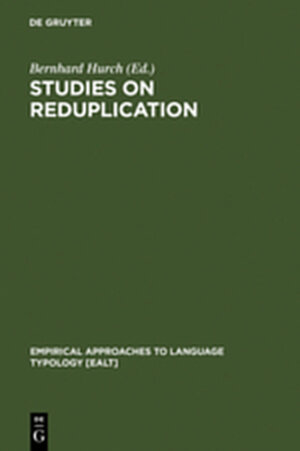
×
![Buchcover ISBN 9783111869490]()
„[...] the book is not to be missed by those who wish to be updated on the latest advancements in the field of reduplication.“Haritini Kallergi in: Linguistics 4/2007 „In the indroduction, Bernhard Hurch provides a detailed summary of the articles publishesd in Studies on reduplication - which thus almost fulfils the function of a review article itself! [...] I strongly recommend this collection of articles to all students of reduplication, morphology, phonology and related subject matters.“Thomas Stolz in: STUF 3/2007
For several reasons, mostly inherent to the different developments of generative grammar, an increasing number of publications have dealt with reduplication in the past 20 years. Reduplication lends itself perfectly as a test field for theories that opt for a non-segmental organization of phonology and morphology. As it happens frequently, then, the discussion centers around a rather small set of data for which alternative analysis are offered, and which themselves are intended to contribute to the foundation of new theoretical developments. The present volume (which goes back to a conference on reduplication at the University of Graz, Austria) offers a broader approach to reduplication not only from different theoretical viewpoints, but especially for its phenomenology. Across theories a number of highly qualified authors deal with formal and functional perspectives, with typological properties, with semantics, comparative issues, the role of reduplication in language acquisition, the acquisition of reduplicative systems, sign languages, creoles and pidgins, general grammatical and cognitive principles; the picture is completed by a series of language or language-family specific studies as on Uto-Aztecan, Salish, Tupi-Guarani, Moroccan and Cairene Arabic, various African languages, Chinese, Turkish, Indo-European, languages from India, etc. The overall scope of the conference was to contribute to a new level of discussion of the phenomenon, across theories and across specializations and interests. Update on Contributor's addresses (PDF)




